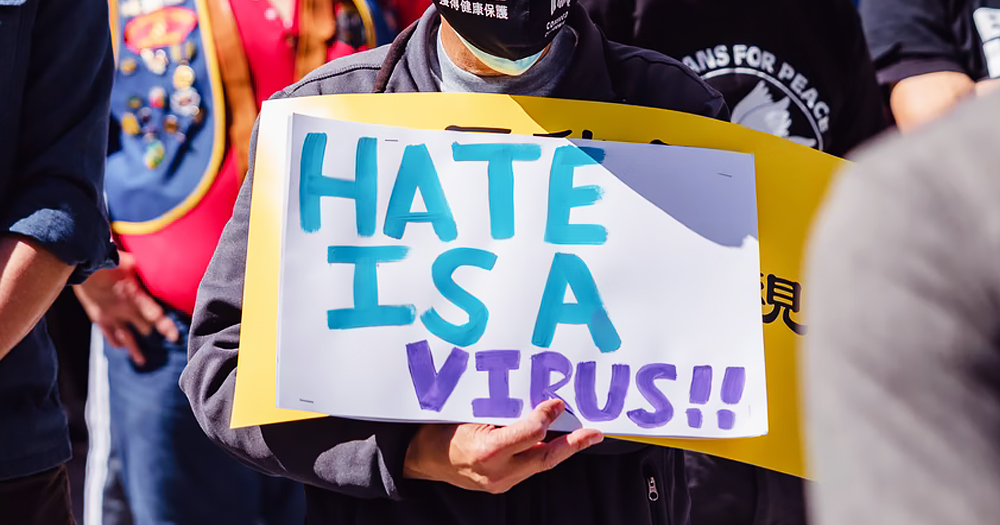Today, March 10, the Seanad has just approved a motion for Ireland to opt-in to new European collective measures to prohibit hate speech. The decision comes after Justice Minister of Ireland, Helen McEntee, participated in the Justice and Home Affairs Council in Brussels on March 3 and 4 and spoke out in favour of the measures. Now the Seanad is calling on the government to start working on enacting an effective hate crime law in Ireland, where minority groups still have no protection against hate violence.
The main topic discussed during the Justice and Home Affairs Council was the European response to the situation in Ukraine and the outcome was the activation of the Temporary Protection Directive, a measure that will grant international protection to those fleeing their homes in the country under invasion.
The motion for Ireland to opt-in to EU wide directive against Hate Crime & Hate Speech is approved by Seanad with overwhelming support from speakers – and calls for Govt to get on with enacting robust Hate Crime law here in Ireland.@Fiona_Kildare @barrymward @marie_sherlock https://t.co/oh9jCK13un
— NXF (@nxfie) March 10, 2022
Another major topic discussed during the meeting was the proposal to add hate speech and hate crimes to the list of crimes included in the Treaty on the Functioning of the European Union (TFEU) and a vast majority, including Ireland, was in favour of the initiative.
“Hate Crime and Hate Speech undermine the very foundations of a democratic and inclusive society, and the common values enshrined in the EU treaties.” commented minister McEntee “A collective response at European level is needed to effectively address the challenges raised by hate speech and hate crime, and extending the Euro crimes list is the first step in addressing this. Ireland welcomes the proposed initiative and arrangements are being made to allow Ireland to opt-in to this measure.”
Joining fellow EU Justice and Home Affairs Ministers in Brussels to discuss how we can quickly and humanely help our Ukrainian friends.
We need to activate the Temporary Protection Directive today to help Ukraine and its neighbouring EU countries ?????? ?? ?? pic.twitter.com/KHRvCAQlZn
— Helen McEntee TD (@HMcEntee) March 3, 2022
The European Commission proposed this initiative last year, citing a “sharp rise in hate speech and hate crime in Europe“. The new measures would target hate directed to “individuals and groups of people sharing or perceived as sharing ‘a common characteristic,’ such as race, ethnicity, language, religion, nationality, age, sex, sexual orientation, gender identity, gender expression, sex characteristics or any other fundamental characteristic, or a combination of such characteristics.”
Ireland currently has no law that specifically deals with hate crime and hate speech, which means that no discriminatory element can be recognised in the charges against a perpetrator of hate violence. Experts have been calling for the introduction of such legislation for quite a long time, so this news may represent the first step in that direction.
#OireachtasTV – Watch Live coverage from the #Seanad as Senators debate a Motion to approve Ireland’s opt-in to an EU measure on hate crime and hate speech – view on Twitter & Online on the Oireachtas website #seeforyourselfhttps://t.co/EM4xhnO24k https://t.co/2d0nXzwQfG
— Houses of the Oireachtas – Tithe an Oireachtais (@OireachtasNews) March 10, 2022
The term hate speech refers to both verbal attacks on people due to a protected characteristic (for example, their gender identity or sexual orientation) and incitement of violence. Different countries have distinct approaches to hate speech because of the necessity to balance more rights when dealing with the issue.
Last year, in a written submission to the Oireachtas, the Irish Human Rights and Equality Commission (IHREC) said that not all hate speech should face a criminal-law response, since other rights like freedom of expression, privacy and freedom of assembly must be protected. Indeed, those who oppose legislation that would prohibit hate speech frequently do so by invoking their right to freedom of expression. As much as freedom of expression is a fundamental right, it cannot be absolute and it needs to be limited by law for a variety of reasons, including the protection of other people’s rights.
© 2022 GCN (Gay Community News). All rights reserved.
Support GCN
GCN is a free, vital resource for Ireland’s LGBTQ+ community since 1988.
GCN is a trading name of National LGBT Federation CLG, a registered charity - Charity Number: 20034580.
GCN relies on the generous support of the community and allies to sustain the crucial work that we do. Producing GCN is costly, and, in an industry which has been hugely impacted by rising costs, we need your support to help sustain and grow this vital resource.
Supporting GCN for as little as €1.99 per month will help us continue our work as Ireland’s free, independent LGBTQ+ media.
